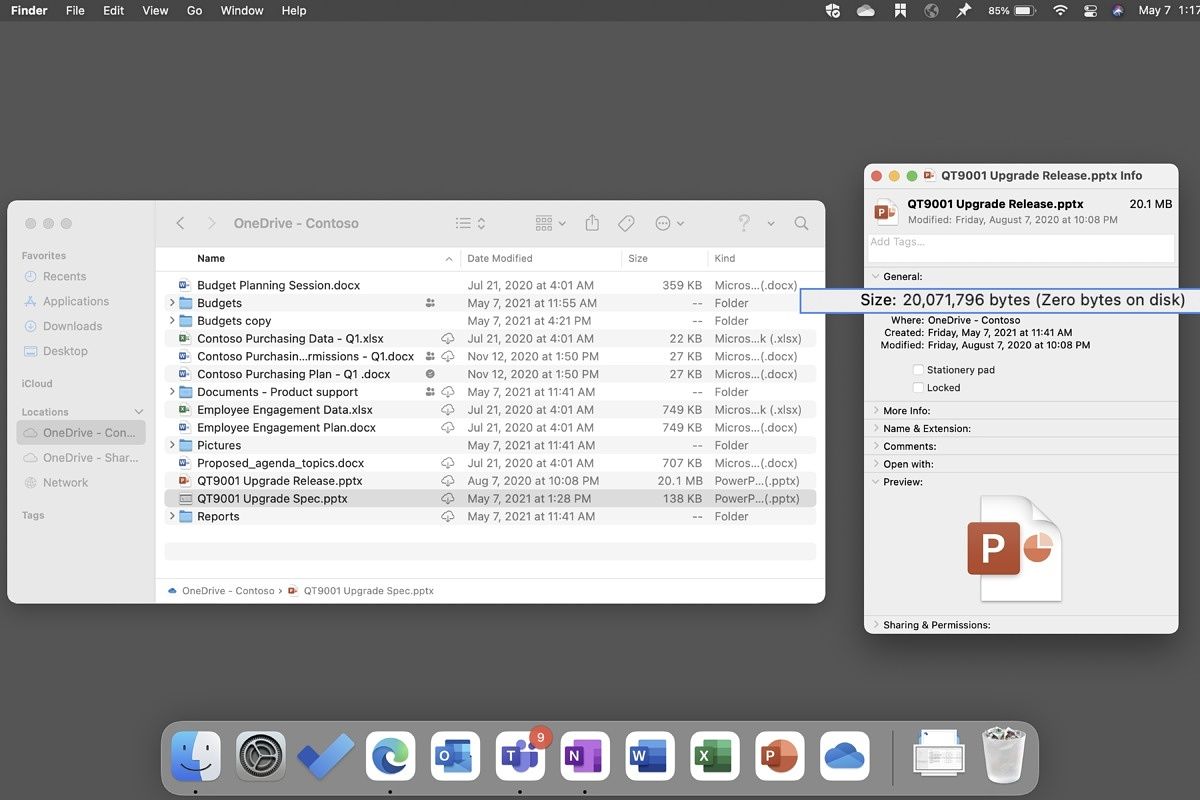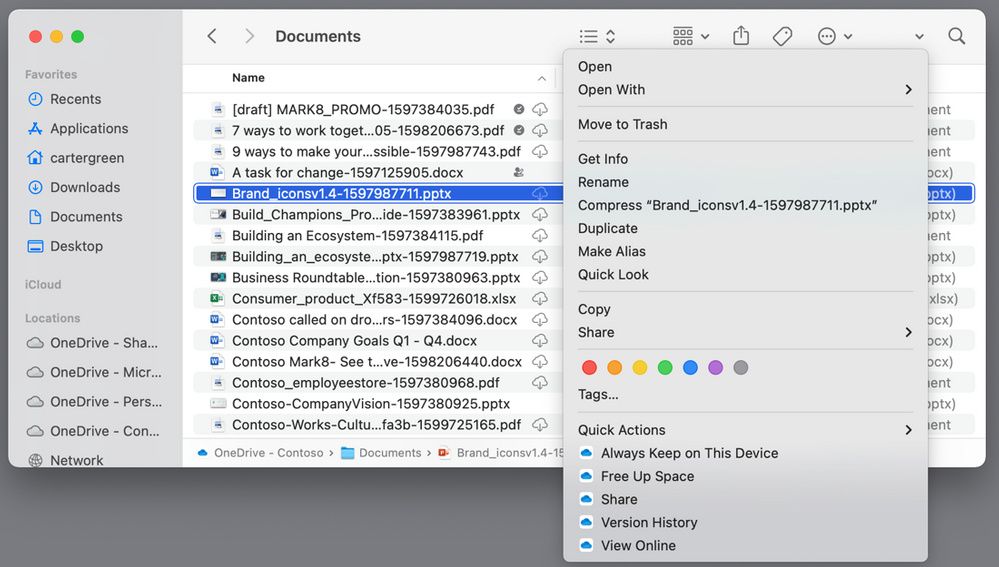Microsoft has announced that its new OneDrive Files On-Demand experience for macOS is rolling out today. This new experience is built on Apple's File provider platform, offering tighter integration with the OS and better app compatibility, along with other improvements. The new OneDrive Files On-Demand experience was first announced last June, alongside a handful of other improvements.
OneDrive Files On-Demand isn't a new feature for macOS users, and its purpose is to make your OneDrive files more easily accessible without necessarily forcing you to download them to your PC. With this new version, that becomes even easier, because OneDrive accounts will now be visible in the macOS Finder app under "Locations" on the side bar. This is all thanks to the new Apple File provider platform, which is a recent addition to macOS and ensures that the feature will be supported by Apple in the long-term since it's deeply integrated with the OS. This also means OneDrive files now support macOS features like file tags, last used date, file system flags, symlinks, and more.
When you browse your OneDrive files in the Finder app, you'll also be able to see whether those files are saved to your PC or only available online. You can set certain files to always be available on your PC if you work with them often, which also keeps them up-to-date if you make any changes on another device. Otherwise, if you want to save space, you can use the "Free up space" option to delete a file from your local storage while keeping it in the cloud.
Another benefit of this new File provider platform is that it enables support for OneDrive's Known Folder Move feature, which wasn't available on macOS before. This enables you to move certain essential folders from your local machine directly to OneDrive, which makes them accessible everywhere and also ensures that you don't lose those files if your device gets damaged or stops working.
There are some things to note with this new experience, though. For one thing, it's only available on macOS 12.1 or newer, so you'll need to install the latest updates to use it. Perhaps most importantly, it's required for anyone running a version higher than macOS 12.2. If you update to a newer version of macOS, the new OneDrive Files On-Demand experience will be enabled by default, and it can't be disabled.
It's also only available for drives using the APFS file system, so if you're still running HFS+ drives, you'll need to upgrade them to APFS to use this feature going forward. Microsoft says only a "very small minority" of users is still using OneDrive sync with HFS+ drives, so you shouldn't have much to worry about on that front.
If you want to get the new experience right now, you can check for updates on the Mac App Store or inside the app itself if you're using the standalone version.


